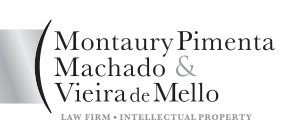After a long discussion involving a lengthy and detailed vote of the Reporting Justice Mr. Dias Toffoli, the Brazilian Supreme Court decided that the sole paragraph of Section 40 of the Brazilian IP Law is unconstitutional during the last session held on May 6.
This legal provision allowed a minimum validity term of 10 years for patents of invention and 7 years for utility models, counted from the granting date. After this decision, all patents granted will be valid for 20 years counted from the filing date, regardless of the time spent by the Brazilian PTO to exam the applications. In addition, the decision applies retroactively to already granted patents related to pharmaceutical products and processes, as well as equipment and materials for use in healthcare. This ex tunc effect of the decision also covers patents that were subject to lawsuits challenging the 10-year rule filed by April 07, 2021, irrespective of the technological field.
Actually, the main rule in Brazil is to grant patents of invention with a 20-year term counted from the filing date as in most countries around the world, but the legal provision of the sole paragraph of Section 40 of the Brazilian IP Law was established as an exception to guarantee a minimum 10-year term in cases where the Brazilian PTO would eventually take a longer time to issue a final decision. Unfortunately, the Brazilian PTO has been facing a huge backlog in the examination of patent applications that has made this legal provision the main rule instead of an exception. Thus, many patents were granted with a 10-year term counted from their granting date, especially in the technical fields in which there is an excessive delay in the examination. The chart below shows the number of pending applications based on the technological area, which primarily affects the chemistry field:

On the other hand, although the current timeframe to issue a decision on the merits of an invention is far from being reasonable, according to data provided by the Brazilian PTO, the plan to tackle the patent backlog launched in August 2019 has proved to be effective: approximately 89,000 applications were examined in almost two years out of 150,000 applications pending examination, thus reducing the backlog in about 60%. Additionally, according to the most recent update provided by the Brazilian PTO, among the pending patent applications, 33% are already under examination (please see the chart below). This means that by keeping this pace, the Brazilian PTO would probably be able to solve the backlog issue in a couple of years and the 10-year rule deemed unconstitutional would be indeed an exception to compensate patentees in cases where there would still be an excessive delay in examination.

Nevertheless, the public health issue raised by the majority of Justices prevailed over the expectation of success of the plan to reduce the patent backlog and now patent owners in Brazil need to deal with the consequences of this important decision, as discussed in the topics below.
1 - The immediate impact on patents related to pharmaceutical products and processes as well as equipment and materials for use in healthcare.
The Supreme Court decision did not provide any information on how to determine whether a patent relates or not to the group of cases defined as “pharmaceutical products and processes, medical equipment and materials for use in healthcare”. Therefore, this classification is being made by the Brazilian PTO, which published a communication a few days after the decision to provide some clarification for patentees.
Initially, the Brazilian PTO clarified that the granted patents affected by the retroactive effect will be reissued with the validity term adjusted in the BPTO Official Bulletin. In case of patents for which the 20-year term counted from the filing date has already elapsed, the extinction of the patent will be subsequently published.
In addition, the Brazilian PTO informed that the patents will be selected based on the following criteria:
- (a) Patents that were sent to the Brazilian Health Surveillance Agency (ANVISA) for prior consent;
- (b) Patents having the following IPC classifications: A61B, A61C, A61D, A61F, A61G, A61H, A61J, A61L, A61M, A61N; H05G (technologies associated with medicine according to WIPO);
- (c) Patents having the following IPC classifications: A61K/6, C12Q/1, G01N/33, G16H;
- (d) Patents having a published lawsuit decision (decision code 19.1); and
- (e) Granted Certificates of Addition.
Based on the above, the Brazilian PTO started to re-publish the patents affected by the retroactive effect of the Supreme Court decision on May 24. More than 3,000 patents already had their term reduced so far and more patents will be published with adjusted term in the next weeks.
2 - The validity of patents that cover both subject matters included and excluded from the above criteria (a) to (e).
A relevant aspect raised by some patentees refers to patents that protect both subject matters included and excluded from the retroactive effect of the decision. As the Supreme Court did not cover this particular situation in the decision, patentees are not sure if they can consider that the reduced validity of some patents will only affect the scope of protection that falls under the ex tunc effect of the decision, namely the ones covered by the above criteria (a) to (e). In addition, the way this partial validity of one aspect of the invention over the other would work in real life is also obscure. It is likely that the Brazilian PTO will not decide this issue and, thus, patentees would have to claim the partial validity before Courts.
3 - The effects of reduction/expiration of patent term on licensing agreements.
As previously mentioned, the Brazilian PTO had to reissue many patents in an urgent basis to comply with the Supreme Court decision. However, a significant number of patents has just expired after the adjustment made by the Brazilian PTO. This unpredicted expiration raised a discussion on legal uncertainty since patentees had a certain expectation of term for their patent portfolio that has been suddenly extinguished by this decision. An immediate impact is faced by patent owners that had the expectation of licensing their technologies. Although the decision stated that already existing contracts would not be affected by the reduction or expiration of patent validity, this is not true for future agreements or even for agreements in course. In practical terms, since many patents will have a shorter validity from now on, the profit made by patentees with their assets can be drastically reduced.
4 - The most affected patents in Brazil belong to universities and research centers.
It is not uncommon to hear that the patent system benefits multinational companies, especially during the pandemic, but this is not what the statistics show. By declaring the sole paragraph of Article 40 of the Brazilian Patent Law unconstitutional, Brazilian universities and research centers, such as UNICAMP, UFRJ, USP, Embrapa and FAPESP had 182 patents with reduced validity as well as 03 patents expired, meaning that their contents are now available to be freely exploited in Brazil. São Paulo University (USP) is one of the most prestigious Brazilian university and is facing the consequences of the expiration of a patent related to the drug Vonau FlashÒ - a very effective medicament to treat nausea and vomit. The royalties received with this drug corresponded to 90% of the university total income with IP in 2019. In addition, USP has a notable patent portfolio of more than 1,300 patents and the total revenue with the commercialization of these assets amounted to 3.44 million BRL in 2018.
5 - The situation of lawsuits that challenge the Brazilian PTO rejection decision in Courts.
In Brazil, whenever the applicant does not agree with a final decision on the rejection of a patent application, it is possible to file a lawsuit before the Federal Courts to challenge this decision. However, since these lawsuits involve the discussion of a technical matter and the Brazilian judges are not specialized in the technological areas under discussion, it is necessary to have an expert appointed by the Judge, who will analyze the technical aspects of the invention in view of the Brazilian IP Law and issue an opinion on the merits. Consequently, these court actions may take many years to be decided. In view of this scenario, applicants that currently have pending lawsuits with this scope are concerned about cases in which the BPTO rejection decision is finally overruled in Courts, but the patent will be granted with a very short validity or even expired. The Supreme Court decision is silent about these cases and it is possible that some lawsuits be abandoned due to lack of purpose.
Conclusion
Based on this Supreme Court decision, it is expected that other consequences will be experienced by patentees in the short- and medium-terms. In most of the situations described above, patentees will need to go before Courts as an attempt to have their rights preserved. The Brazilian PTO is also impacted by this decision since the pressure over the PTO tends to increase without the relief provided by the 10-year rule. Therefore, patentees may opt to file lawsuits requesting expedited examination of their applications in order to get a decision from the Brazilian PTO within a reasonable timeframe.
Although there are still some gray areas that must be addressed by the Brazilian PTO or even by Courts, it is undeniable that a major consequence of the decision taken by the Supreme Court is that the inefficiency of the government in providing the expected technological support to the BPTO resulted in impacts to patent owners. Consequently, the IP community is analyzing the options to minimize the damages caused to patentees and one of the goals now is to have the financial autonomy of the Brazilian PTO implemented by the government. Additionally, there are some remedies that can be used in these cases such as the above-mentioned lawsuits to expedite the examination of pending applications and even a consultation to the Brazilian PTO in the event the applicant believes that one or more patents should not be affected by this decision because they do not actually refer to pharmaceutical products and processes, or to equipment and materials for use in healthcare.
Source:






